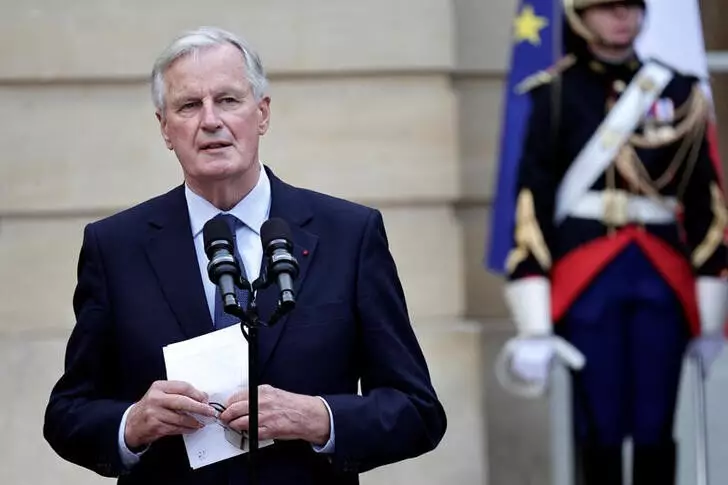The appointment of Michel Barnier as Prime Minister by President Emmanuel Macron underscores a pivotal moment in French politics. Amid a cloud of political uncertainty following the recent legislative elections, Macron’s decision illustrates his attempt to stabilize an increasingly fractured political landscape. The election results led to a hung parliament, which has raised questions regarding the future of his presidency and legislative agenda. Macron, faced with the pressure of navigating a parliament dominated by conflicting ideologies, recognizes that Barnier’s expertise in negotiation and governance may be essential for his administration’s survival.
Barnier, aged 73 and regarded as a seasoned politician, comes into his new role armed with a wealth of experience. His previous tenure as the European Union’s chief negotiator for Brexit earned him a reputation for thoroughness and resilience in high-pressure situations. However, these accolades may not translate seamlessly to the domestic challenges he faces, especially in a political milieu where divisions run deep, leading to a potentially tumultuous governance period.
One of the foremost challenges confronting Barnier is the urgent need to navigate impending budget legislation amidst mounting public discontent. The French populace is grappling with a cost-of-living crisis, which has generated significant unease regarding government spending and austerity measures. With the parliament’s ideological diversities, Barnier must construct a budget that not only meets fiscal requirements but also addresses the pressing needs of his constituents.
The market response to Barnier’s appointment has been cautiously optimistic, as investors reacted positively with a slight decrease in borrowing costs and a moderate rise in the euro. However, this financial optimism may be short-lived if Barnier fails to unite a divided parliament and articulate a coherent plan to tackle economic challenges. The balancing act of effectively managing budget cuts while addressing the needs of citizens will be critical in determining the acceptance of his administration and guiding France toward economic recovery.
Barnier’s leadership will be distinctly marked by the need for coalition-building in a landscape populated with extreme and diverse political factions. Initially, his efforts seem to have found partial support among Marine Le Pen’s National Rally, but this endorsement comes with significant strings attached that could constrain his political maneuverability. The far-right party’s demands emphasize the urgency of addressing issues such as immigration and public safety, topics that are likely to amplify tensions in parliament.
Moreover, Barnier’s relationship with the left is fraught with animosity, as they have decried his appointment as a “democratic coup.” Their vehement opposition suggests that Barnier may expect fierce resistance as he attempts to implement any significant policy changes. The atmosphere is set for increased protests and challenges that will test his diplomatic skills and ability to leverage discourse to create consensus among entrenched positions.
Looking Ahead: A Test of Political Fortitude
As Barnier embarks on this new chapter, questions arise regarding his political ideology and alignment with Macron. Although he has previously expressed views counter to far-right sentiments, Barnier may need to recalibrate his positions to align with the current political environment. This necessity poses a fundamental question about the integrity of his leadership: will he maintain his convictions, or will he compromise them in pursuit of political viability?
Barnier’s past critiques of Macronism, characterized by skepticism about its longevity, also loom large in the backdrop of his new role. The expectations placed upon him are immense, as Macron hopes Barnier can mitigate political strife while preserving his legacy. The next few months will be a rigorous test of Barnier’s political acumen and resolve as he attempts to forge a path forward for a divided France while contending with the weight of history and public scrutiny. Failure to unify the country could lead not only to a fractured government but potentially signal an end to Macron’s presidency much sooner than anticipated.

